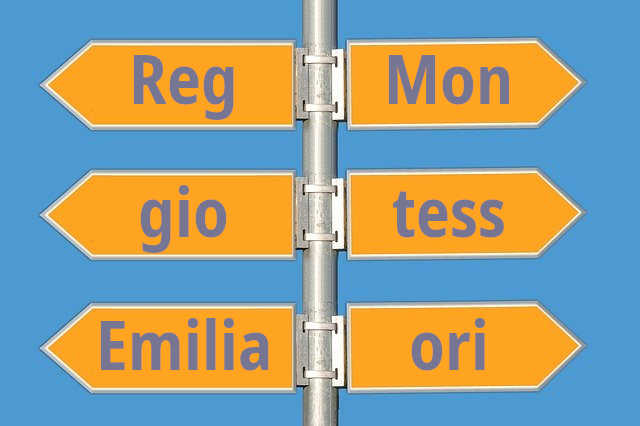What’s The Difference Between Daycare And Preschool?

For many parents, deciding whether to enroll their child in daycare or preschool can be a daunting task. While both offer varying amounts of care and education, there are distinct differences between the two programs. While daycare may provide a safe and stimulating environment for children, it focuses more on basic needs and general supervision. On the other hand, preschool is designed to help children develop important cognitive, social, and emotional skills that prepare them for kindergarten and beyond. Understanding the differences between the two programs can help parents make the best decision for their child’s overall development. In this blog post, we will discuss the key differences between daycare and preschool, including their respective objectives, curriculum, environment, and requirements. We’ll also delve into the factors that can help parents determine which option is the best for their child. Whether you are a first-time parent or contemplating a change in your child’s early education, this article will provide you with key insights to help you make an informed decision.
Age of Children: Daycare typically serves children of all ages, while preschool is specifically for children who are 3-5 years old.
If you’re a parent looking to enroll your child in a childcare program, it’s important to understand the differences between daycare and preschool. One key difference is in the age of the children the programs typically serve. Daycare centers are designed to accommodate children of all ages, from infants to school-age children. On the other hand, preschool programs are specifically tailored for children between the ages of 3 to 5 years old, who are typically not yet enrolled in elementary school. This age group is commonly referred to as the early years or the preschool years. Understanding this distinction can help you choose the best program for your child based on their age and developmental needs.
Hours of Operation: Daycare centers may offer extended hours to accommodate parents’ work schedules, while preschools generally operate during normal school hours.
One of the main differences between daycare centers and preschools is the hours of operation. Daycare centers typically offer extended hours of care to accommodate the work schedules of parents, while preschools typically operate during normal school hours. Daycare centers often provide care for infants, toddlers, and young children up to school age, while preschools usually focus on children aged three to five years old who are not yet ready for kindergarten. This difference in age range and operating hours can impact a parent’s decision in choosing between a daycare center and a preschool. It is important for parents to consider their work schedules and their child’s age and educational needs when choosing between these two options.
Learning Environment: Daycare centers tend to be more informal, while preschools are often more structured and introduce more academic concepts.
One major difference between daycare and preschool is the learning environment. Daycare centers usually provide a more relaxed and informal atmosphere, where children are primarily supervised by experienced caregivers, and there is less emphasis on educational activities. Preschools, on the other hand, tend to be more structured, with a curriculum that aims to prepare children for kindergarten and beyond. Preschools introduce more academic concepts, such as language, math, and science, and use a variety of teaching methods, including group activities, individual projects, and computer-based learning tools. Teachers in preschools often have more specialized training, and they may be required to hold a bachelor’s degree in early childhood education, ensuring that they are equipped to provide a high-quality learning experience for young children.
Activities: Daycare typically offers more play and leisure activities, while preschool may include more focused learning activities such as circle time or story time.
Daycare centers typically provide children with more play and leisure-oriented activities, which allow them to socialize with other children and explore their physical and creative abilities. On the other hand, preschool programs usually emphasize more focused learning activities designed to prepare children for kindergarten. Examples of these activities may include circle time, story time, and simple academic exercises such as learning shapes, colors, and letters. It is important to note that both daycare and preschool have their unique benefits, and parents need to weigh their options based on their children’s needs and age.
Teachers: Daycare centers may have less experienced teachers, while preschools typically have teachers who are certified in early childhood education.
One important factor to consider is the experience and qualifications of the teachers. Daycare centers may employ less experienced teachers who have not necessarily received formal education and training in early childhood education. In contrast, preschools typically have teachers who are certified in early childhood education, which means they have undergone specialized training and possess the necessary knowledge and skills to help children learn and develop in a structured and age-appropriate manner. Ultimately, a preschool environment may offer your child a higher quality of education and care, with teachers who are better equipped to meet their developmental needs.
Socialization: Daycare centers offer more opportunities for socialization with a variety of other children and adults, while preschools are usually focused more on teaching.
Daycare centers generally offer more opportunities for socialization with a variety of other children and adults, due to the fact that they typically care for children of all ages, from infants to toddlers and elementary school-aged children. Children in daycare centers have the opportunity to interact with a diverse group of peers and adults, which can help promote social and emotional development. On the other hand, preschools are usually more focused on teaching and preparing children for academic success, with less emphasis on free play and socializing. While preschools may still provide some opportunities for socialization, they may not offer the same breadth of experiences as daycare centers. Ultimately, your decision between daycare and preschool should depend on a variety of factors, including your child’s individual needs, your family’s scheduling needs, and your personal preferences.
Discipline: Daycare centers may not have explicit discipline policies, while preschools tend to have more rules.
Discipline is an important aspect of early childhood education, and it is one area where daycare centers and preschools may differ. Daycare centers may not have explicit discipline policies, while preschools tend to have more rules. This is because preschools are more focused on preparing children for the structure of a typical classroom setting. Preschools tend to employ positive reinforcement techniques, such as rewards for good behavior, and may employ time-outs or other consequences for negative behaviors. Daycare centers may employ similar methods, but the emphasis on structure and discipline may not be as strong. It is important to note that discipline is not synonymous with punishment, as the ultimate goal is to teach children to make positive choices and develop self-control.
In conclusion, while daycare and preschool may seem similar, they offer important distinctions for parents to consider based on their child’s needs. Daycare provides essential childcare services while preschool provides an early education that can benefit a child’s cognitive, social, and emotional development. Ultimately, the decision between daycare and preschool depends on the parent’s values, budget, and scheduling needs. By understanding the differences between the two, parents can make informed decisions that best support their child’s growth and development.






